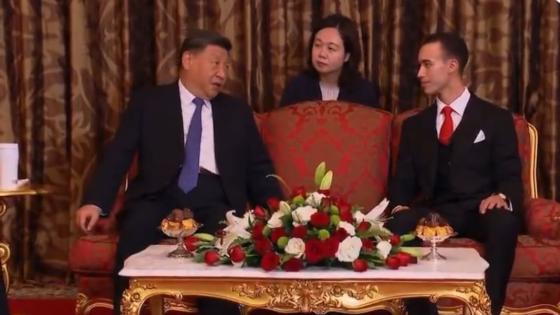
Thanks to its strategic alliance sealed with Washington,Beijing,and Brussels,Morocco has become an important partner in global trade and the new geopolitical shifts taking place in the world.
In an analysis published Wednesday on Morocco’s rising economic power,The New York Times recalled the brief visit paid latest November to Morocco by Xi Jinping and his meeting with Crown Prince Moulay Hassan,saying the visit was sign of the growing economic ties between China and Morocco,the largest automotive manufacturing hub in Africa.
In the last couple of years,investment in Morocco from Chinese energy and electric vehicle and battery producers has exploded,with $10 billion directed to that industry,said the U.S. newspaper,noting that dozens of Chinese companies involved in automobile manufacturing are setting up shop in Morocco,including the battery maker Gotion High-tech.
The boom is a sign of the growing importance of countries like Morocco,which has a free-trade agreement with the European Union,that serve as connective nodes in a global trading system that is remaking itself around an obstacle course of high tariffs,trade restrictions and geopolitical rivalries.
Beijing “wants to leverage Morocco’s key advantages,” said Alexandre Kateb,an economist and founder of the Multipolarity Report,a strategic advisory platform.
At the doorstep of Europe and Africa,Morocco has been building an “automotive industry ecosystem” for 20 years,Mr. Kateb said. The country has a sophisticated transportation network that includes ports like Tangier-Med and large reserves of phosphates,which are used in producing car batteries. The country also has been moving swiftly to transition to clean energy.
Morocco became the leading car exporter to the European Union in 2023,surpassing China,Japan and India,according to Auto World Journal.
The French carmaker Renault,drawn by lower labor and energy costs than in Europe,has been manufacturing in the country for more than 20 years. The auto group Stellantis,which owns Chrysler and Jeep,has been expanding its footprint in Morocco since 2019.
“For Chinese automakers,Morocco could now play that same role for Europe” that Mexico did for manufacturers that sought to sidestep U.S. tariffs,said Ahmed Aboudouh,an associate fellow at the Middle East and North Africa program at Chatham House.
But sharpening tensions between China and the United States as well as China and Europe have created a difficult balancing act for Morocco which sees China as a major partner and is “aware of the risk”,said Aboudouh.
Chinese loans and investments through its Belt and Road Initiative have helped power Morocco’s economic development,helping to build the kingdom’s infrastructure with projects like a high-speed rail line,solar power plants and a $10 billion tech hub in Tangier. This year,a Chinese company was chosen to provide steel for a planned $26 billion gas pipeline between Nigeria and Morocco.
At the same time,the U.S. strategic partnership is also a priority for Morocco,Mr. Aboudouh said. Morocco engages in military exercises with the North Atlantic Treaty Organization and collaborates with the United States on counterterrorism. Morocco would also like to procure American F-35 stealth fighter jets.
The North African Kingdom has had a free-trade agreement with the United States for two decades. Mr. Trump has,nonetheless,subjected it to a 10 percent across-the-board tariff that he imposed on virtually all imports. But Morocco has not been threatened with the additional punishing tariff levels directed at nations like Mexico,Vietnam and Thailand,said the prestigious daily,stressing that Morocco has been following a hedging strategy for a long time.
United News - unews.co.za